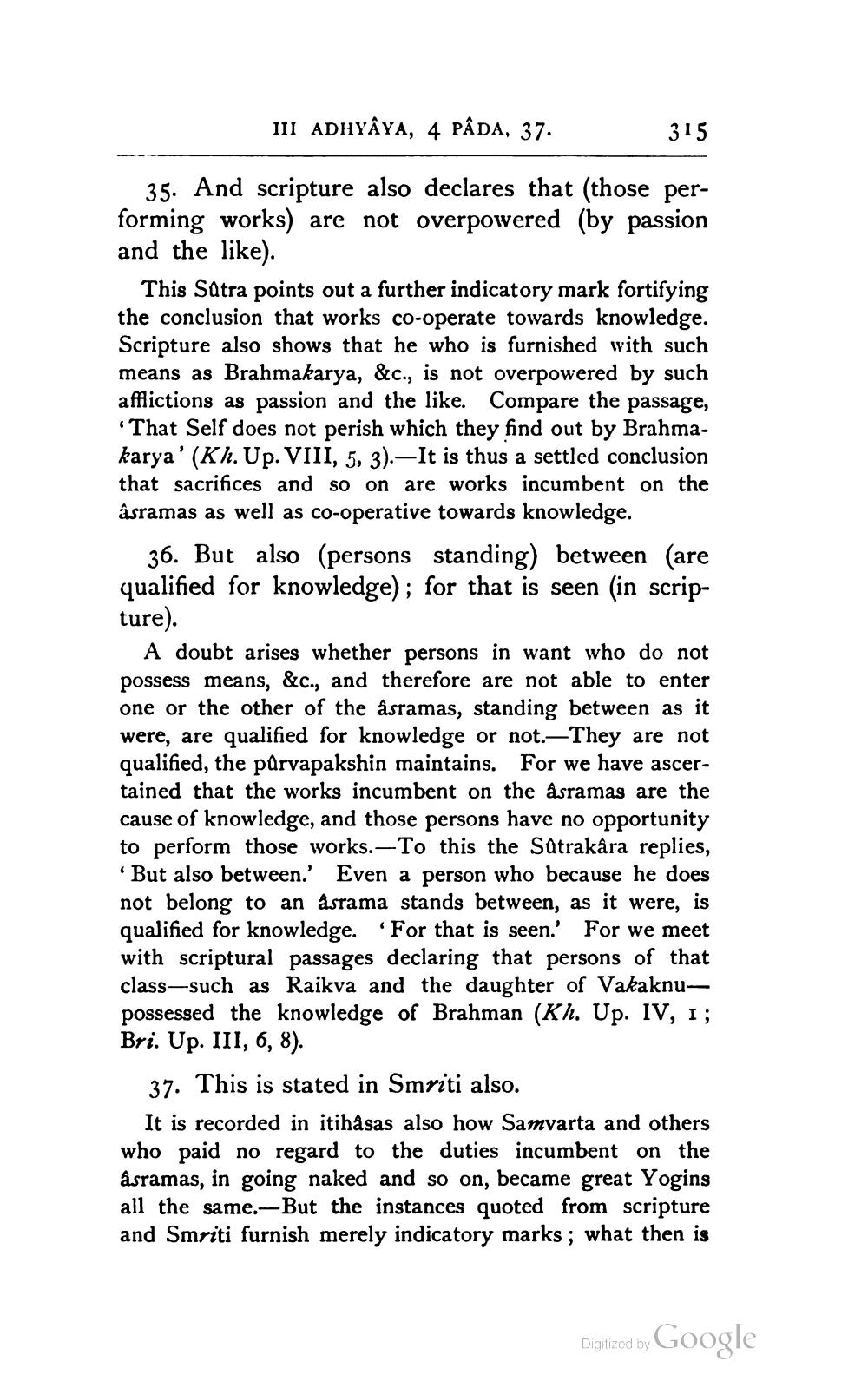________________
III ADHYAYA, 4 PÂDA, 37.
315
35. And scripture also declares that (those performing works) are not overpowered (by passion and the like).
This Satra points out a further indicatory mark fortifying the conclusion that works co-operate towards knowledge. Scripture also shows that he who is furnished with such means as Brahmakarya, &c., is not overpowered by such afflictions as passion and the like. Compare the passage, “That Self does not perish which they find out by Brahmakarya' (Kh. Up. VIII, 5, 3).— It is thus a settled conclusion that sacrifices and so on are works incumbent on the âsramas as well as co-operative towards knowledge.
36. But also (persons standing) between (are qualified for knowledge); for that is seen (in scripture).
A doubt arises whether persons in want who do not possess means, &c., and therefore are not able to enter one or the other of the asramas, standing between as it were, are qualified for knowledge or not.—They are not qualified, the pūrvapakshin maintains. For we have ascertained that the works incumbent on the asramas are the cause of knowledge, and those persons have no opportunity to perform those works.—To this the Satrakâra replies,
But also between.' Even a person who because he does not belong to an asrama stands between, as it were, is qualified for knowledge. 'For that is seen.' For we meet with scriptural passages declaring that persons of that class—such as Raikva and the daughter of Vakaknupossessed the knowledge of Brahman (Kh. Up. IV, 1; Bri. Up. III, 6, 8).
37. This is stated in Smriti also.
It is recorded in itihàsas also how Samvarta and others who paid no regard to the duties incumbent on the asramas, in going naked and so on, became great Yogins all the same.-But the instances quoted from scripture and Smriti furnish merely indicatory marks; what then is
Digitized by
Digilzed by Google




